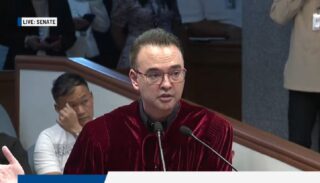The country posted a slim surplus in its balance of payments (BOP) for October as the central bank dipped into its dollar reserves to control spikes in the peso’s value.
Data from the Bangko Sentral ng Pilipinas (BSP) showed that the country’s October BOP surplus settled at $5 million—lower than the $465 million reported the month before, and the $604 million seen in October of 2012.
This brought the year-to-date level to $3.83 million—lower than the $6.43 million recorded in the same 10-month period last year.
The country’s BOP position is a summary of all its transactions with the rest of the world.
Items counted in the BOP include remittances from overseas Filipino workers (OFW), revenue from exports and the business process outsourcing sector, foreign investments, and tourist receipts.
In a statement, BSP Governor Amando M. Tetangco Jr. said the country was able to maintain a surplus in its BOP for the month due to OFW remittances and foreign investments in stocks, bonds, and other short-term securities.
Portfolio investments, or “hot money,” reached $969 million in October, the highest level so far this year.
“The BSP remains watchful of developments abroad, particularly shifts in investor sentiment due to signals from the US Federal Reserve of future action,” Tetangco said.
He added that the BSP’s intervention in the foreign exchange market, through its open market operations, affected the BOP figure for the month.
Financial markets globally are currently waiting for clues on the schedule for the US Fed’s plan to scale back its monthly asset purchases amid signs of recovery of the US economy.
These purchases of mortgage-backed securities and US Treasuries, totaling $85 billion every month, helps keep interest rates down in support of the recovery of the world’s largest economy.
Last June, senior Fed officials said the asset purchases could be tapered in the coming months to allow the US economy to stand on its own legs.
“The BSP will continue to watch market conduct to ensure volatility in the foreign exchange market is not excessive,” Tetangco told reporters.


